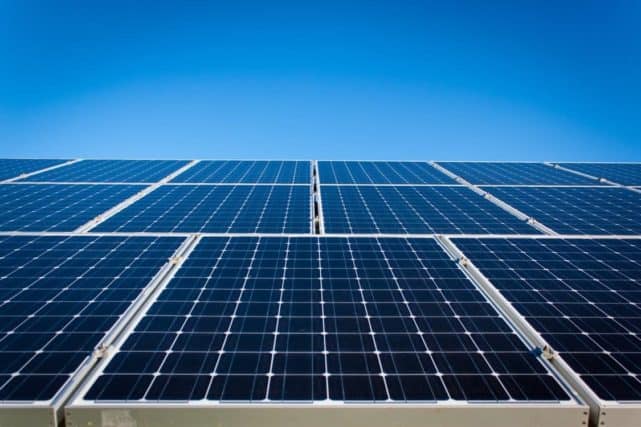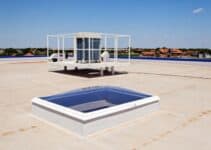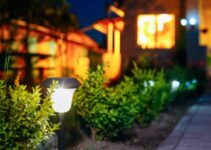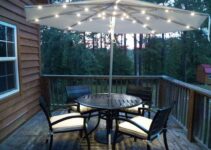With all the technology coming out, it makes sense that people would be interested in going green as often as they can. When it comes to the housing market, buying solar panels for your home is a smart way to save money on your electric bills and promotes using natural energy. In fact, an article on TheVerge.com goes even further to say that we can potentially use solar panels to cool our homes while collecting the energy for power too.
There are many types of solar panel companies to choose from and solar technology at that. Consumers can choose from solar panels for electricity, solar thermal systems for HVAC, and solar backup batteries to get you completely disconnected from the grid.
If you’re looking to add solar panels to your current home in Charlotte, Portland, Phoenix or any other city, here are some things to consider to help you determine if this is the right move for you.
How much do you pay for electricity?
The average price for electricity in the U.S. is about 12 cents per kilowatt-hour. If you and your family use lots of lights, air conditioning and/or heating and lots of electronic gadgets, that bill can get expensive quickly. Once your home is solar powered, that essentially means there’s a tiny powerplant on the top of your roof and those families that have a higher cost of electricity are the ones that save the most cash. If you are unsure what it would save you in the long run, look up a solar calculator online to run your numbers.
Is it expensive to get a solar panel system?
If you’re thinking about getting a solar panel installation for your home, it’s smart to do some research on local companies as prices can vary. It might sound appealing to go for the cheapest deal possible, but that might not be worth as much down the line. In the long run, if you buy higher quality equipment you’ll see the most savings over a couple decades. Keep in mind that the federal government offers a 30% solar tax credit, and you may be able to find additional local installation rebates for 50% or more.
Generally, a 5K solar panel system will cost you around $25,000, although there are much smaller and cheaper options available for residential homes.
Where is the best place to install a solar panel?
The best place to position a solar panel would be where it can collect the most sunlight. This is why most solar panels are installed on rooftops. If this is inconvenient or not possible for your home, fret not, as solar panels can be installed on the ground.
What’s most important to evaluate is how you can maximize your panel’s exposure to sunlight. If placed on the ground, it might be ideal to trim away at some shrubs that could be blocking the panel’s exposure to sunlight.
What if I live somewhere that doesn’t have a lot of sun?
The short answer is: no problem! You might be surprised to hear that some of the cities with the highest rate of solar installations are in the northwestern states, where snow and short winter days are common. These places may use more electricity than many other areas of the country, but they don’t need 300 days of sun to benefit from a solar panel system.
Solar panels produce electricity from photons that are present in natural daylight, not from sunlight itself. Heat isn’t a factor in how much electricity solar panels can generate either, in fact, a cool day can be just as productive or more so than a hot day.
Rain, snow, and cloudy days generally won’t impact your solar panel system and it can be a cost-effective way to collect electricity.
Am I Still Tied to the Grid?
Now, installing solar panels on your roof generally will not provide you with enough electricity to power your needs. For that reason, many houses that have solar panels are still connected to their meters and still receive a fraction of their energy from their utility provider.
In that case, some people buy solar backup batteries capable of saving electricity during times of peak sunlight and using that electricity at night.
Can I Sell My Energy
Fortunately, many localities and utility companies have programs in place to help you sell any excess electricity back to the grid for a credit. This number is capped after a certain point in the month, so it may be ideal to snag a backup battery in addition to a solar panel to make the most of your electricity needs.
Is it Worth It?
This ultimately comes down to how much money you are willing to put down for an initial investment. With any product, the more expensive and comprehensive the system, the greater the savings over the long-run.
Fortunately, the cost of solar panel installations are continuously dropping as utility costs continue to rise. This is because the transmission of electricity services is significantly outdated in many areas, requiring constant maintenance and improvements that will cause energy costs to remain high for a long time.
If you can bypass that transmission and get yourself a more efficient way of preserving energy then you could save a lot of money over the long-run.
To calculate savings, collect your utility bills from the last year and see how much less you saving over a one year period. If savings for a $20,000 10K solar panel saves you $2,000 a year then you can expect to make your money back in 10 years. Considering that solar panels are rated to last for a few decades, it could be the difference in savings between buying and renting a home.
In the end, the choice between going solar has more practical benefits beyond saving money. The choice mainly comes down to whether or not it is in your short term interest to invest a lot of money into a solar panel.






